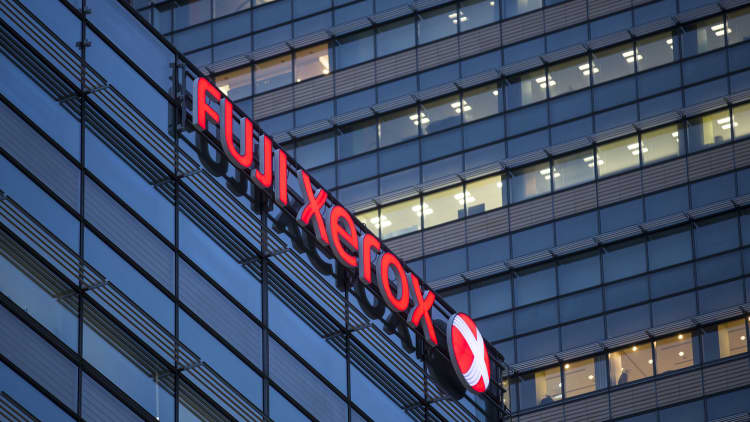
The Xerox deal to combine with Fujifilm took another blow Tuesday when its third-largest shareholder, Darwin Deason, sued Xerox and Fuji in New York state court for alleged fraud.
He is seeking to stop the companies from completing their deal and to nullify their joint venture.
The complaint, brought by Deason's lawyers at King and Spalding, alleges that the Fuji-Xerox joint venture contains a "crown jewel lock-up right that allows Fuji to control Xerox's intellectual property and manufacturing rights in the $36 billion Asia-Pacific market in the event Xerox were to sell to another suitor."
Deason claims that this lock-up was concealed from shareholders for 17 years until the recent transaction with Fuji was consummated.
Deason also claims an accounting scandal at the Fuji-Xerox joint venture and an independent report that criticized Fuji for its prominent role in contributing to the matter gave Xerox the right to terminate the joint venture agreements.
Xerox said the allegations "are without merit." Fujifilm did not immediately respond to a CNBC request for comment.
The suit claims:
"The self-interested director defendants, however, ignored the opportunity or deliberately chose not to terminate the joint venture agreements. Had the director defendants terminated the joint venture agreements, they would have been able to engage in a fair and equitable bidding process and achieve a fair value and control premium for Xerox shareholders. Indeed, the value of Xerox as a standalone company with no encumbrances on its intellectual property and the licensing, manufacturing and selling of its products in the Asia and Pacific Rim markets is significantly greater than the value being provided to the company and its shareholders as part of the proposed transaction."
Japan's Fujifilm announced at the end of January it will buy Xerox for $6.1 billion and combine it into its existing joint venture. Deason and another Xerox shareholder, Carl Icahn, have been vocal about criticizing the combination.
Icahn and Deason said in an open letter this week the deal "dramatically undervalues Xerox and disproportionately favors Fuji."
"We urge you our fellow shareholders do not let Fuji steal this company from us," Deason and Icahn wrote.
In an email to CNBC, Xerox spokesman Carl Langsenkamp said:
"Mr. Deason's allegations are without merit and the company will vigorously defend itself. After having considered all strategic alternatives available to the company, Xerox's Board of Directors remains steadfast in its belief that the combination with Fuji Xerox is the best path to create value for the company and its shareholders. It is unfortunate that Mr. Deason is seeking to interfere with Xerox shareholders right to decide and is relying on meritless legal claims. Xerox has fully disclosed the joint venture agreements, and the company will respond to Mr. Deason's legal claims through the appropriate legal channels in due course."


